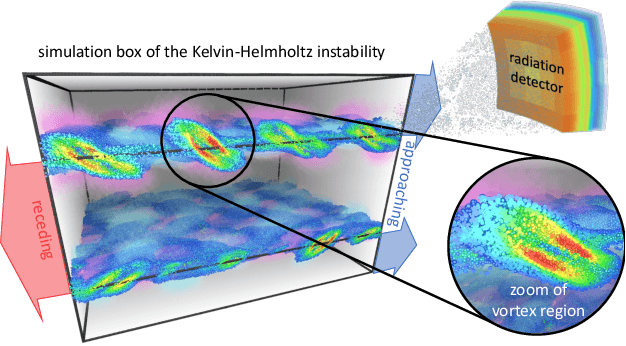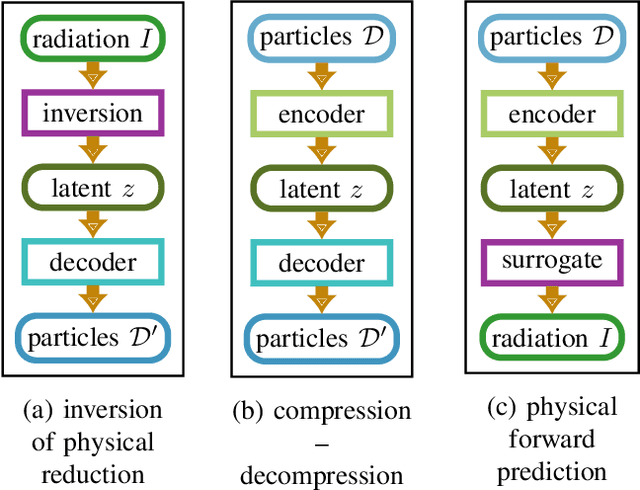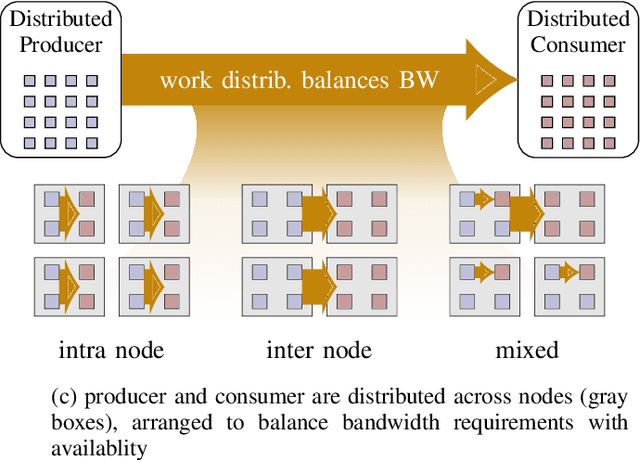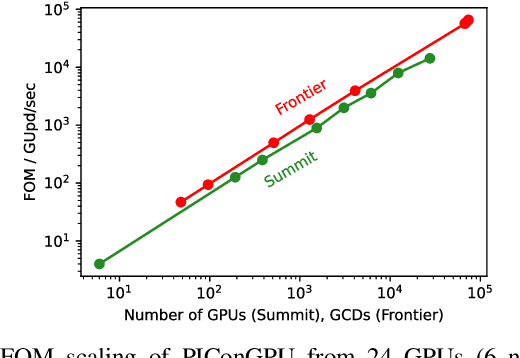Jeyhun Rustamov
The Artificial Scientist -- in-transit Machine Learning of Plasma Simulations
Jan 06, 2025



Abstract:Increasing HPC cluster sizes and large-scale simulations that produce petabytes of data per run, create massive IO and storage challenges for analysis. Deep learning-based techniques, in particular, make use of these amounts of domain data to extract patterns that help build scientific understanding. Here, we demonstrate a streaming workflow in which simulation data is streamed directly to a machine-learning (ML) framework, circumventing the file system bottleneck. Data is transformed in transit, asynchronously to the simulation and the training of the model. With the presented workflow, data operations can be performed in common and easy-to-use programming languages, freeing the application user from adapting the application output routines. As a proof-of-concept we consider a GPU accelerated particle-in-cell (PIConGPU) simulation of the Kelvin- Helmholtz instability (KHI). We employ experience replay to avoid catastrophic forgetting in learning from this non-steady process in a continual manner. We detail challenges addressed while porting and scaling to Frontier exascale system.
LiFe-net: Data-driven Modelling of Time-dependent Temperatures and Charging Statistics Of Tesla's LiFePo4 EV Battery
Dec 16, 2022Abstract:Modelling the temperature of Electric Vehicle (EV) batteries is a fundamental task of EV manufacturing. Extreme temperatures in the battery packs can affect their longevity and power output. Although theoretical models exist for describing heat transfer in battery packs, they are computationally expensive to simulate. Furthermore, it is difficult to acquire data measurements from within the battery cell. In this work, we propose a data-driven surrogate model (LiFe-net) that uses readily accessible driving diagnostics for battery temperature estimation to overcome these limitations. This model incorporates Neural Operators with a traditional numerical integration scheme to estimate the temperature evolution. Moreover, we propose two further variations of the baseline model: LiFe-net trained with a regulariser and LiFe-net trained with time stability loss. We compared these models in terms of generalization error on test data. The results showed that LiFe-net trained with time stability loss outperforms the other two models and can estimate the temperature evolution on unseen data with a relative error of 2.77 % on average.
 Add to Chrome
Add to Chrome Add to Firefox
Add to Firefox Add to Edge
Add to Edge